Research
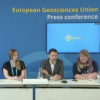 Our planet protects us from cosmic rays, solar flares, micrometeorites and huge temperature variations. But what if the planetary shield is not strong enough, or what if we venture out into space itself?! In this press conference, scientists discuss
Our planet protects us from cosmic rays, solar flares, micrometeorites and huge temperature variations. But what if the planetary shield is not strong enough, or what if we venture out into space itself?! In this press conference, scientists discuss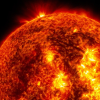 Solar activity can knock satellites off track, raising the risk of collisions. Scientists are hoping improved atmospheric models will help. “It’s not unlikely that we will get a large geomagnetic storm in the next four or five years,” says Berger. “
Solar activity can knock satellites off track, raising the risk of collisions. Scientists are hoping improved atmospheric models will help. “It’s not unlikely that we will get a large geomagnetic storm in the next four or five years,” says Berger. “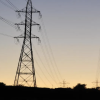 At the AGU's 2023 Fall meeting in San Francisco, Andong Hu, a space weather researcher with SWx TREC, presented his work on a machine learning forecast approach, developed at CU Boulder, that gives power transmission operators more lead time.
At the AGU's 2023 Fall meeting in San Francisco, Andong Hu, a space weather researcher with SWx TREC, presented his work on a machine learning forecast approach, developed at CU Boulder, that gives power transmission operators more lead time.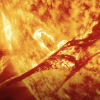 The first primitive ancestor of future AI-based solar-weather alert systems is live. [SWx TREC's] DstLive system, which debuted on the web in December 2022, uses machine learning to take data about the state of Earth’s magnetic field and the solar wind and translate both into a single measure for the entire planet, known as DST.
The first primitive ancestor of future AI-based solar-weather alert systems is live. [SWx TREC's] DstLive system, which debuted on the web in December 2022, uses machine learning to take data about the state of Earth’s magnetic field and the solar wind and translate both into a single measure for the entire planet, known as DST.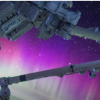 NASA announced that it had selected four Space Weather Centers of Excellence, including the Space Weather Operational Readiness Development (SWORD) center at CU Boulder. As its name suggests, the nearly $10 million center will offer some
NASA announced that it had selected four Space Weather Centers of Excellence, including the Space Weather Operational Readiness Development (SWORD) center at CU Boulder. As its name suggests, the nearly $10 million center will offer some The Space Weather Technology, Research & Education Center is leading a NASA Space Weather Center of Excellence, an integrated multi-agency initiative to advance the science and technology of space weather.NASA has selected three Space Weather
The Space Weather Technology, Research & Education Center is leading a NASA Space Weather Center of Excellence, an integrated multi-agency initiative to advance the science and technology of space weather.NASA has selected three Space Weather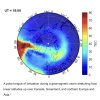 Yang Wang is leading a unique study harnessing satellite data to study how solar activity affects a poorly understood region of Earth’s upper atmosphere.Wang, a visiting faculty member in the Ann and H. J. Smead Department of Aerospace
Yang Wang is leading a unique study harnessing satellite data to study how solar activity affects a poorly understood region of Earth’s upper atmosphere.Wang, a visiting faculty member in the Ann and H. J. Smead Department of Aerospace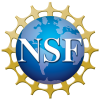 The National Science Foundation (NSF) has announced the 2021 winners of the NSF Graduate Research Fellowship Program (GRFP).Swx TREC PhD student Anton Buynovskiy was among those to receive the prestigious award which recognizes and
The National Science Foundation (NSF) has announced the 2021 winners of the NSF Graduate Research Fellowship Program (GRFP).Swx TREC PhD student Anton Buynovskiy was among those to receive the prestigious award which recognizes and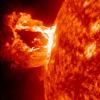 Dr. Thomas Berger, SWx TREC executive director, has landed a NASA grant to research space weather with machine learning. Berger is leading a team that has received a two-year, $496,000 grant to design a better forecasting system for solar
Dr. Thomas Berger, SWx TREC executive director, has landed a NASA grant to research space weather with machine learning. Berger is leading a team that has received a two-year, $496,000 grant to design a better forecasting system for solar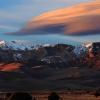 SWx TREC co-investigator Cora Randall is the principal investigator for one of two new CU science centers to be funded by NASA. The program is part of NASA’s Diversity, Realize, Integrate, Venture, Educate (DRIVE) Science Center initiative.
SWx TREC co-investigator Cora Randall is the principal investigator for one of two new CU science centers to be funded by NASA. The program is part of NASA’s Diversity, Realize, Integrate, Venture, Educate (DRIVE) Science Center initiative.

